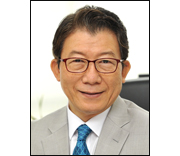-
[December 29, 2015 Korea times] Parallel import dispute
- Date : 2016.03.10
- Views : 284
Parallel import dispute
 |
By Jeffrey I. Kim
The term ‘parallel import' is a new concept ineconomics literature. However, in international business literature and law,parallel importing has been much discussed since the mid-1980s. The thornyissues of parallel importing began to emerge when import liberalizationprevailed internationally. Now parallel importing has become a common practiceworldwide and often becomes a nation's news topic for trade dispute.
Korea is not an exception. Parallel importing by unauthorized dealers is one ofthe grievances that foreign investors in Korea often appeal to the governmentfor resolution. The foreign distributor authorized by the product manufacturerrequests that the host government should stop unauthorized distributors fromparallel import activity.
The dispute on parallel imports stems partly from different interpretations ofwhat exactly a parallel import is. The dispute involves three stakeholders ―the original product manufacturer, the initial distributor authorized by themanufacturer, and the unauthorized distributor. The unauthorized import channelexists in parallel with the authorized import channel. In this tri-angulararrangement, the authorized import dealers are very worried because they madethe effort to advertise and promote the imported products while theunauthorized import dealers do nothing but enjoy a free ride. Parallel importproducts range from traditional luxuries to brand-name products such as wines,cameras, and watches and to other industrial products including pharmaceuticalsand medicinal products.
At the individual level, the free ride of the unauthorized parallel importersdoes not seem to be fair. At the international level, however, it is not necessarilyso. The original manufacturer's international price discrimination is to blame.Parallel importing is accepted internationally because it results in twobenefits for the world as a whole. One is that the parallel importercontributes to lowering the prices of the brand-name products by providingthese products at lower prices than the official importer.
One good example can be cited. A particular brand of US jeans is imported intoIsrael from the US by the official importer, and then sold in Israel at $80 apair. At this point, the parallel importer might purchase the same genuinejeans from a dealer in Poland at a much lower price than that paid by theofficial importer. Consequently, the world-wide consumers can enjoy goodquality products at cheaper prices.
In this situation, the official import dealer feels much deprived. All of itsinvestment in marketing the brand is being exploited by the parallel importers.However, the parallel importers make the manufacturer's monopolistic pricediscrimination ineffective so that international consumers may enjoy thebenefit of low-prices.
Another merit is that parallel importing can provide poor countries with easieraccess to medicinal products at lower prices. The Agreement on Trade-RelatedAspects of Intellectual Property Rights (TRIPS) administered by the WTO statesthat the parallel imports of pharmaceuticals cannot be challenged and is amatter to be left at the discretion of a country.
Nevertheless, parallel importing is not completely free from internationaldispute. Whether parallel importing is subject to international dispute or notdepends on the limits of the intellectual property rights. Every intellectualproperty right has limitations. Once a product covered by an intellectualproperty right has been sold by the owner, the intellectual property right canno longer be exercised by the owner. This limitation is referred to as the"exhaustion doctrine" or "first sale doctrine." There is abroad consensus throughout the world that this doctrine applies at least withinthe context of the domestic market. This is the uncontroversial concept ofnational exhaustion.
In contrast, international exhaustion is much more controversial. If a countrydoes not recognize the international exhaustion doctrine, the foreign sale doesnot deprive the intellectual property right owner of the right to prevent theparallel importation. This is the area where foreign investors may argue forthe host government's intervention of parallel imports in their country.
The position of the Korean government is to recognize the internationalexhaustion doctrine and maintains that parallel imports help lower pricesthrough competition between the authorized distributors and parallel importers.The government encourages foreign distributors to have more candidcommunication with foreign manufacturers and exercise more active marketing fordomestic consumers. Foreign distributors have considerable comparative andabsolute advantages in providing after-care services for their brand-nameproducts in the host country.
Jeffrey I. Kim is a foreign investment ombudsman, a presidentially appointedtroubleshooter for investors and entrepreneurs from overseas. He earned a Ph.D.in economics at the University of Chicago and taught at the University ofColorado, Boulder, and Sungkyunkwan University.
Link : http://www.koreatimes.co.kr/www/news/opinon/2015/12/197_194174.html










